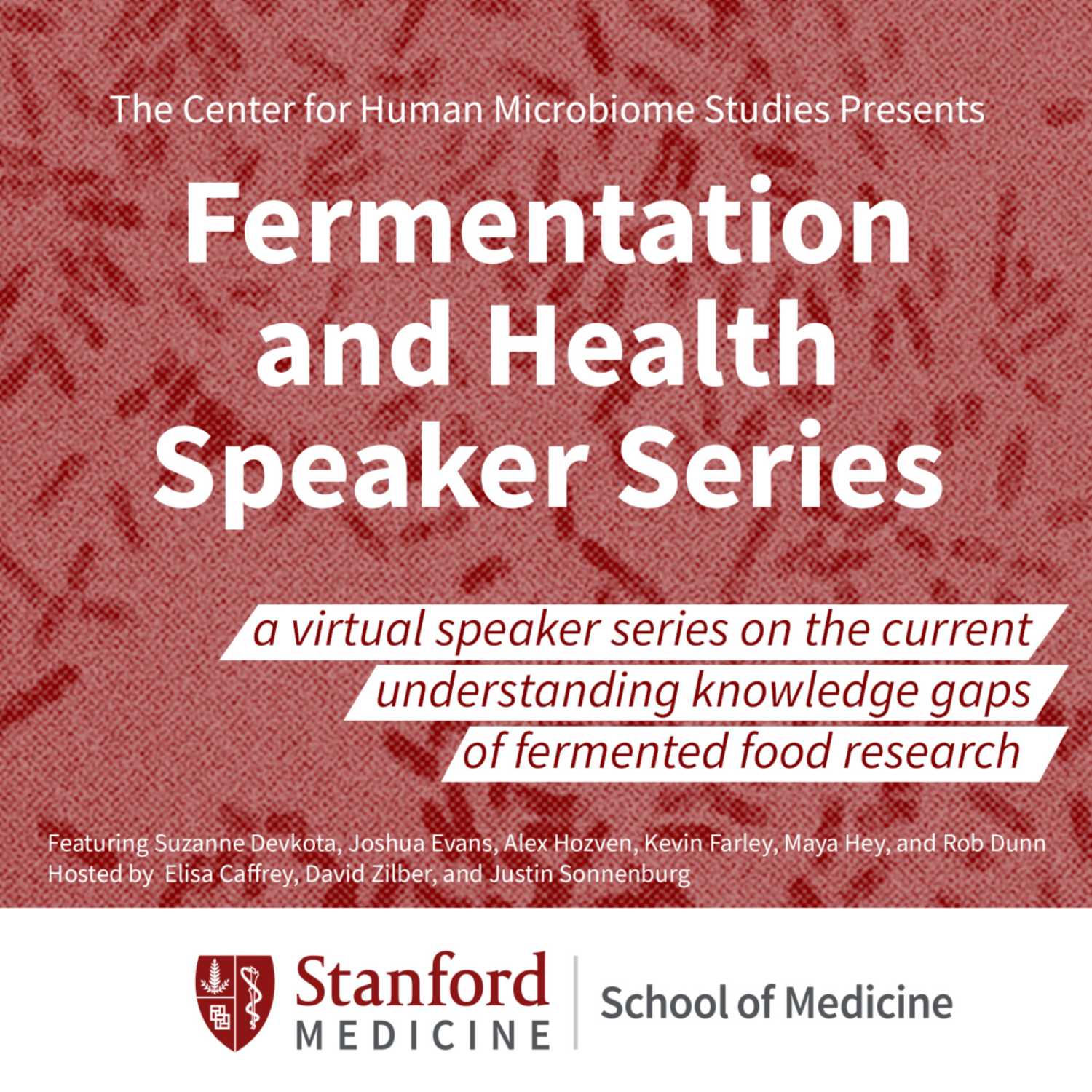Episodes
We spoke with Dr. Aviaja Hauptmann, an Associate Professor in the Institute of Health & Nature and Head of the Department of SILA (Scientific and Indigenous Teachings on Life in the Arctic). Her work explores the interaction between microbiology, diet, and the environment, focusing on Inuit food microbiomes and Indigenous food sovereignty. She is examining gastrophagy as a way of connecting animal gut, food, and human gut microbiomes.
Join our conversation on hybrid fermentation,...
Published 07/30/24
Published 07/30/24
Lactic acid bacteria (LAB) play a central role in many fermented foods, including sourdough, kimchi, pickles, olives, zha cai, kefir, ogi, and cheese, among others. These microbes produce lactic acid, which acidifies the fermented food, making it both safe and tasty. Specific LAB strains have also been characterized as probiotics. But how do LAB found in fermented foods differ from probiotics? And what exactly defines a probiotic?
We spoke with Dr. Maria Marco, a Professor in the Department...
Published 07/06/24
Dr. Chantle Swichkow, a postdoc in Leonid Kruglyak’s lab at UCLA, has been exploring the role of yeast in these symbiotic interactions. By applying her background in mouse genetics to yeast, she studies how yeast strain diversity impacts microbial community composition and the final organoleptic properties of wine, bread, and kombucha.
Join our conversation on the history of Saccharomyces, strain diversity in fermented food production, blue Takis, and the power of Reddit.
Published 06/04/24
One way to characterize fermented foods is based on where the fermentation microbes come from: either spontaneously acquired from the environment (also known as wild fermentation), from a previous ferment (back-slopping), or from a commercial starter community. But how do we identify which microbes are involved in this process in the first place?
Paul Cotter, an Adjunct Professor at University College Cork and Head of Food Biosciences, as well as a Senior Principal Research Officer at...
Published 05/17/24
The microbiome of fermented foods, like any microbiome, is a multi-species microbial community and can include a rich mixture of bacteria, fungi, and yeast all in the same fermented food. The presence of a specific microbe cannot always predict the final quality, safety, or flavor of a fermented food, but studying their interactions gives a richer understanding of these community dynamics.
Ben Wolfe, an Associate Professor in the Department of Biology at Tufts University has been exploring...
Published 04/15/24
Along with bacteria and yeast, fungi play an important role in fermentation. We primarily think of Aspergillus oryzae and Rhizopus oryzae, but there are a number of other fungi that are used in food production, including Aspergillus sojae, Monascus purpureus. We wanted to talk to Dr. Vayu Hill-Maini, postdoctoral Fellow at the Joint Bioengineering Institute at University of California Berkeley, working in the lab of Jay Keasling, who has been approaching research into filamentous fungi in two...
Published 03/26/24
One of the most well recognized microbes in food fermentation is Lactobacillus delbrueckii subsp. bulgaricus, used to produce most yogurts today. Originally named Bacillus bulgarian, the name plays homage to Bulgaria where it was first isolated in 1905. But before we isolated this microbe and cultured it to use as a starter, how was yogurt made?
With the help of Sevgi’s family and insight from the rest of the community, Sevgi, Veronica and David traveled to Nova Mahala, Bulgaria to explored...
Published 03/14/24
Dr. Rob Dunn is an an evolutionary biologist, currently a professor at both the Center for Evolutionary Hologenomics at the University of Copenhagen and in the Department of Applied Ecology at North Carolina State University, where he holds the title of Senior Vice Provost for University Interdisciplinary Programs. He discusses the evolution of flavor and fermentation practice.
Published 06/23/23
Dr. Maya Hey is a researcher at the Centre for the Social Study of Microbes, based in the University of Helsinki. She has been studying fermentation and health for the past 15 years and holds degrees in nutrition, food studies, and communications.
Published 06/07/23
Alex Hozven has been fermenting and innovating at The Cultured Pickle Shop in Berkeley for over 25 years with her husband, Kevin Farley. Her experience gives her keen insight into how consumer perception of fermented foods has changed, where the field is going, the regulatory landscape for smaller producers, and how fermented foods can be used to build community.
Published 04/20/23
Dr. Evans is a Senior Researcher and Leader of the Sustainable Food Innovation Group at the Center for Biosustainability at the Technical University of Denmark. His multidisciplinary group uses culinary research & development to make flavorful, sustainable, often fermented foods, scientific methods to study their flavor, ecology and evolution, and social science and artistic practice to understand and experiment with how they might fit into food culture.In his talk, Dr. Evans shares some...
Published 03/29/23
Dr. Devkota is an Associate Professor at the Cedars-Sinai Division of Gastroenterology and the Director of Microbiome Research at the F. Widjaja Foundation Inflammatory Bowel and Immunobiology Research Institute. Her research investigates the relationship between diet and the gut microbiome, with a particular focus on IBD. Dr. Devkota offers a valuable perspective on the current role of fermented foods in a clinical setting, addressing important questions such as which fermented foods are...
Published 03/16/23
In this first talk, David Zilber presents a framework through which to consider fermentation and health research.
Published 01/25/23


